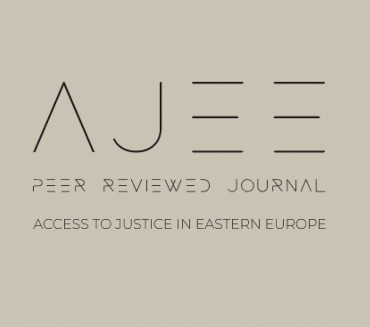1. Introduction. – 2. Conflicts in Law. – 3. The Role of Judicial Law-Making in Resolving Legal Conflicts. – 4. Mechanisms for Resolving Conflicts in Law. – 5. Conclusion.
Law is a key regulator of social relations. Its systemic nature is fundamental for proper, clear and comprehensive regulation of legal relations. As an integral system, law has its own logic, structure, order and purpose. This purpose is to properly regulate social relations, ensure law and order, and qualitatively and consistently satisfy the rights, obligations and interests of participants in legal relations. However, legal regulation is not without its flaws. One major issue of legal regulation is gaps in the law, where certain social relations lack proper legal regulation due to a lack of specific legislative or legal approaches. Other flaws include conflicts between laws, legislative gaps, qualified silence of the legislator, "darkness" of legal norms, and a "seeming" need for legal regulation and other legal phenomena similar in nature. This article addresses how judges resolve conflicts of law in the course of judicial proceedings, namely the construction of a mechanism to resolve conflicts within national legislation to ensure the right to a fair trial. This issue is of particular importance in the context of the war in Ukraine because, unlike in the relatively stable judicial practice of resolving disputes that arise in a society where there is no war, today, the courts now face unprecedented cases, such as those involving military medical commissions decisions, financial support of military personnel, and new wartime criminal prosecution. Additionally, judges must navigate the procedural norms for the administration of justice in wartime, which are changing rapidly. The study identifies specific cases of conflict in law, particularly in issues related to mobilisation. It highlights how inconsistencies in current legislation and the lack of uniform approaches to overcoming them often prevent citizens from exercising their rights. This situation directly contradicts the Sustainable Development Goals in terms of building peaceful and inclusive societies for sustainable development, ensuring access to justice for all, and building effective, accountable, and inclusive institutions at all levels. The authors of the article highlight the growing importance of legal principles in resolving conflicts within the law. Foundational concepts like the rule of law, legal certainty, and legality are recognised grounds for judicial decision-making. Accordingly, this allows courts to interpret conflicts in specific areas of legislation – such as tax legislation in favour of the taxpayer, child rights in favour of children, and labour law in favour of employees. Consequently, similar claims may be resolved differently depending on their subject matter. To support this analysis, the authors analysed 150 decisions of Ukrainian judges, studied the concept of conflicts, formulated a refined definition, assessed the role of judicial law-making in resolving legal conflicts, and developed a mechanism for addressing conflicts in law by judges.
Methods:
The authors employed a general dialectical analysis approach grounded in the doctrine of society and thinking, along with the historical method, to analyse the development of legal norms and institutions in different historical periods. This approach provides insights into their origins, evolution and impact on the modern legal system. Methods of analysis and synthesis of information were also utilised. To support the authors’ conclusions, relevant empirical information, including court decisions from the Unified State Register of Court Decisions, were referenced. A total of 150 court decisions containing collisions from 2015 to 2024 were analysed, 22 of which were cited in this article.
Results and Conclusions:
Conflicts in law are defined as subjectively caused phenomena involving the confrontation of several norms or their totality, resulting in the inability to apply legal norms effectively, clearly, and consistently to regulate social relations. A definition of conflicts in law from a judicial perspective is also proposed: they are contradictions within legal regulation, a negative legal phenomenon that a judge, with the authority vested in them, must resolve in a manner that upholds fundamental principles of law during the administration of justice.

